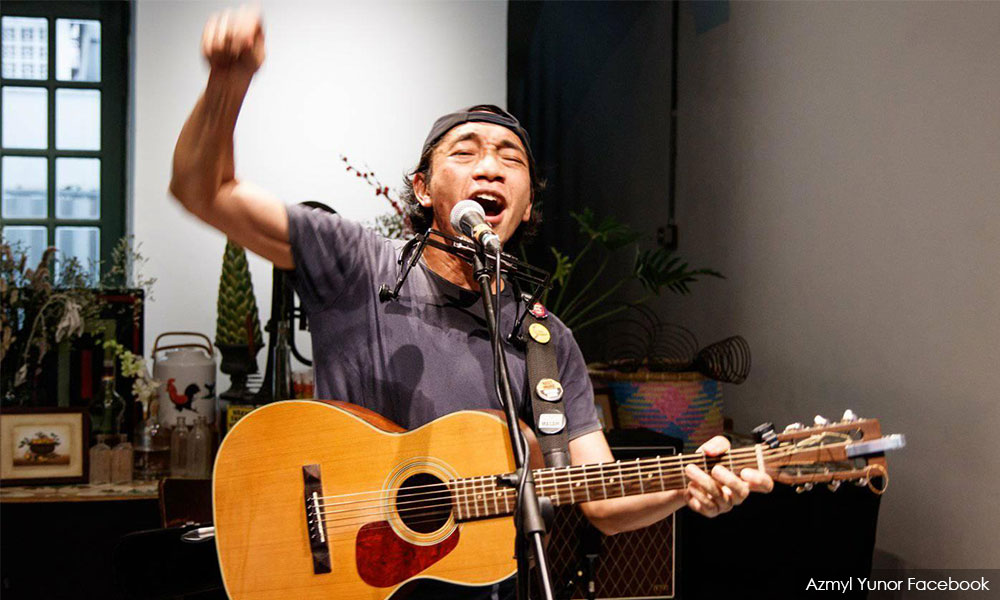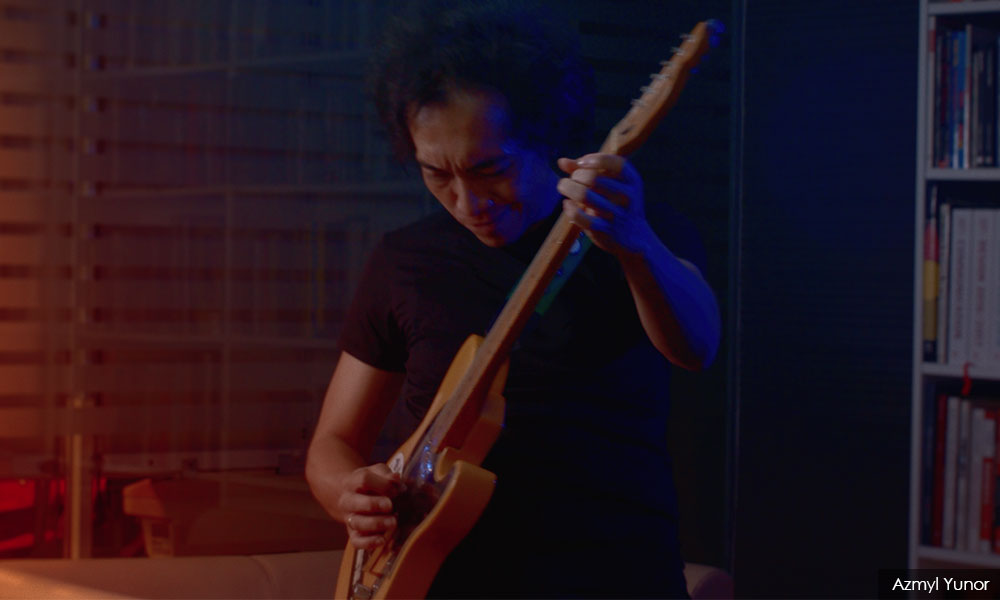It took independent musician Azmyl Yunor about 10 years to finish selling 1,000 copies of his album Warga which was first released in 2010.
“My 2010 album Warga was quite popular, people in the community liked the music but I think it only finished selling 1,000 copies last year.
“So that’s my window for selling albums, 10 years,” Azmyl said in a recent phone interview with Malaysiakini.
Not that it has stopped the 44-year-old who just released a music video for his latest single, Penghasut Blues, released amidst ongoing corruption court cases involving former national leaders, from his 2020 album John Bangi Blues
Azmyl's persistence is just one example of how independent musicians in the country have to be tenacious in sticking to their creative goal of crafting original music despite the lack of a supportive ecosystem and wider audience market.
Another independent musician, Bihzhu, told Malaysiakini it was only late last year that some of the major English language radio stations started playing local English songs in their regular rotation.
“The ecosystem around independent music (in Malaysia) is not built to help us succeed. It’s not just music, it is also theatre and cinema and so on.
“Whenever we get a new minister, or there is a change of government, they do not look at art as an essential part of nation-building,” said the 37-year-old musician, who released her latest single Alive in January.

She cited the example of South Korea and how aggressively their government has promoted the arts of their country to the world which has been beneficial in other ways as the success of Korean pop music, soap operas and horror movies helped create a positive image of the country.
Describing it as a "chicken-and-egg" situation, Bihzhu said the lack of systemic support for local artistes was feeding the audience apathy towards local musicians and vice versa.
Azmyl, whose day job is a lecturer, added that "big tech" – referring to tech giants like Google and Facebook – and their algorithms also play a role in suppressing exposure of local independent artistes.
“Talent is not a problem in this country but the artistes need exposure.
“Capitalism has damaged the power of artistes. Artistes have been emasculated by this economic structure,” he said.
Malaysiakini journalist and musician Martin Vengadesan pointed out that the market for original local music, especially in English, was already very small even before the Covid-19 pandemic.
“When I first started as an entertainment journalist in the mid-1990s, BMG (recording company) alone used to have a stable of 100 artistes and local English music by OAG, Butterfingers, Too Phat, etc, used to sell good numbers, in the tens of thousands.
"Sadly, it’s hard to point to those sort of numbers nowadays even if there are high profile names such as Yuna and Zee Avi.
"People are hardly buying cassettes or CDs now and the streaming payment rate is lousy, it takes thousands of listens for a few dollars.

“Every CD will cost more than RM10,000 to make so it’s often a loss-making labour of love if you are an independent performer,” said Vengadesan.
Vengadesan recently released his third album The Knight’s Flight which contains 14 songs via his recording project Martin Vengadesan & The Stalemate Factor, which was recorded with the help of fellow journalist/musicians NR Lohan (guitars), Edward Gomez (bass) and Andrew Sagayam (drums).
'Incredibly talented'
Azmyl said there was no doubt that recording original music was an expensive passion but he has learned to be smart with money since he started his music career in the late 1990s.
For example, his latest music video Penghasut Blues was done on a minuscule budget and filmed in a friend’s office and the building’s parking lot.
Vengadesan said that almost everyone recording original independent music in Malaysia was earning a living outside of selling that music, especially as the live music scene has been decimated by Covid-19.
“Reaching people is even more difficult now that we can't do live shows. Some may be able to do promotional videos but even that will often require an additional budget you can't recoup,” he said.

Malaysian musicians are often caught in a situation where they don't develop their own compositions, playing in bands doing covers or teaching or doing production work for advertising or media houses instead, he added.
Bihzhu concurred, saying she managed to earn most of her income from music for only one or two years out of her 10-year long solo music career.
“I have since sort of diversified my income because I realise that if I want to rely on original music to make a living, it adds a lot of pressure on me and that takes away from my creativity,” she said.
Despite all the challenges, Azmyl’s advice to independent musicians is not to be bogged down by “industry-driven narratives”.
“I think it is a good time to reflect, what does it mean to do what I do, what does it mean being an artiste or a singer-songwriter?
“You shouldn’t take your eye off the bigger picture and if you maintain that, you will find a silver lining in this,” he said.

Bihzhu said she was even more excited about making music than when she first started out about 16 years ago.
Her latest single Alive came about during the Covid-19 pandemic last year when she said she felt “stuck in a rut” and wanted to find ways to “seek out the joys of living again”.
She also urged Malaysians to support more local artistes.
“A lot of time people say support us because we are local but I'd rather they support us because we are good.
“Malaysians are incredibly talented,” she added. - Mkini




No comments:
Post a Comment
Note: Only a member of this blog may post a comment.